View comparison results
After you have compared the data sources, Schema Compare displays the comparison results in the upper part of the Results window. Here, you can select objects for synchronization.
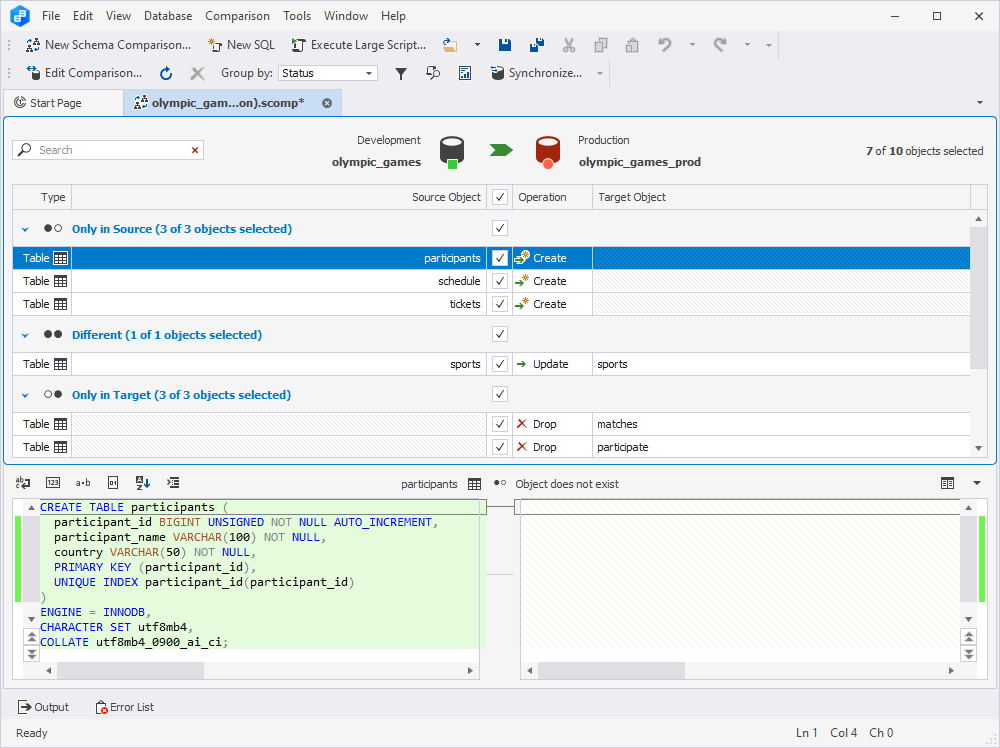
If you need to compare the data sources again using the same project settings and update the comparison results, click  Refresh or press F5. In case you need to change the settings, click
Refresh or press F5. In case you need to change the settings, click  .
.
By default, the results are grouped for display by status. However, for convenience when working with the results of the comparison, you can use other grouping options.
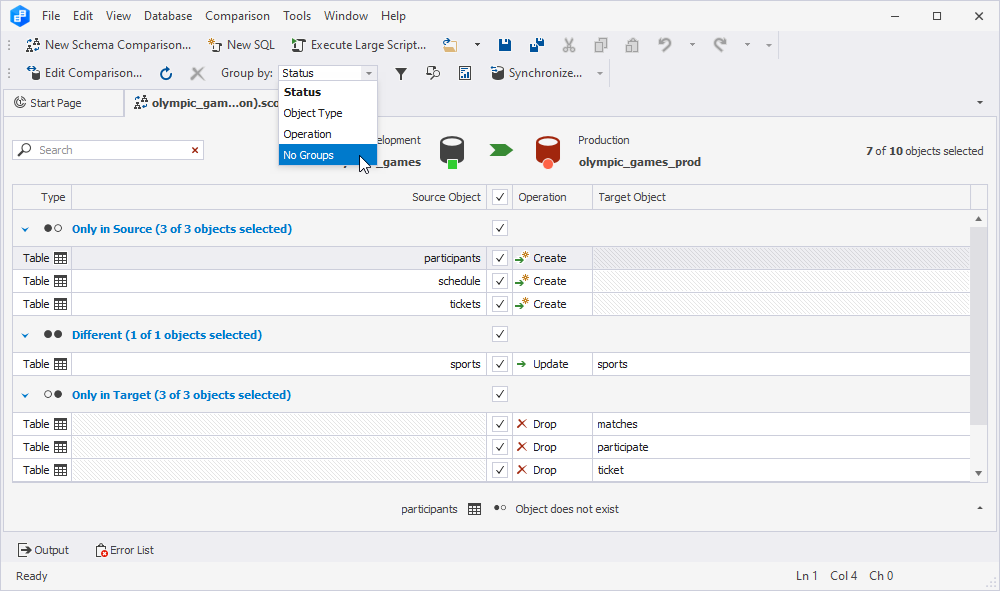
Select objects for synchronization
The number of objects that will be deployed is shown above the table with the results.
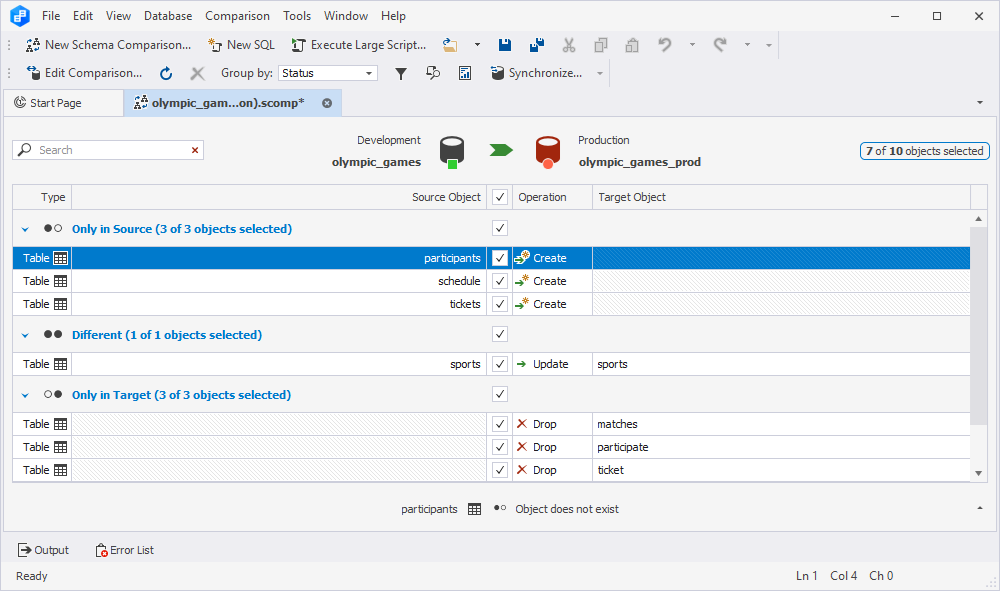
By default, all objects are selected. If you wish to exclude an object from deployment, simply clear the checkbox next to it.
To modify the operation associated with an object, click the cell within the Operation column and choose the desired operation from the drop-down list.
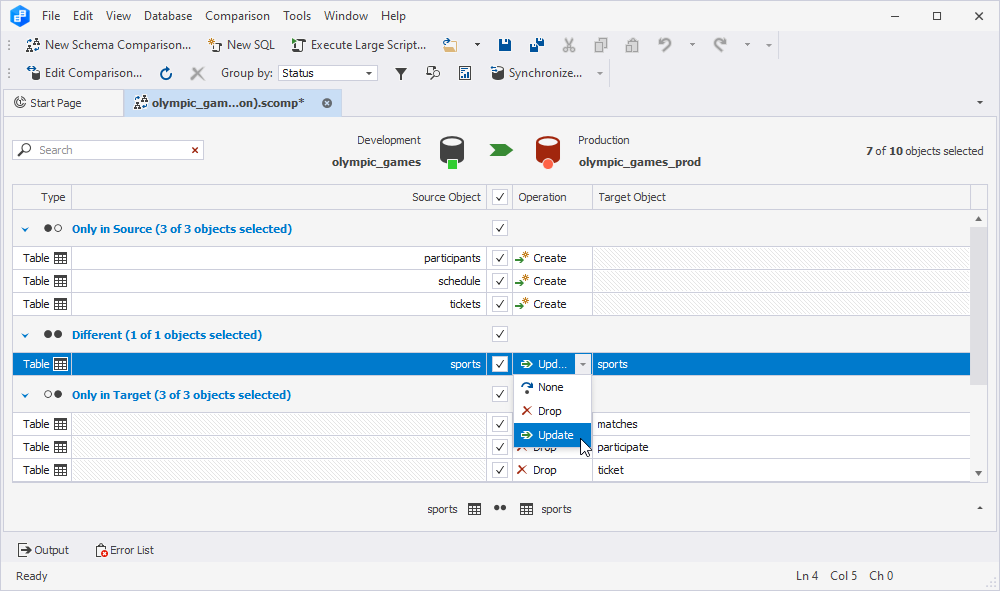
Search for objects
In the comparison results document, you can search for objects by typing the search text in the Search box. The list is filtered to display only those objects that contain the search text.
The default search mode is case-insensitive. It means that searching for a term like ignore will highlight all options containing the text, regardless of whether they are capitalized (Ignore) or lowercase (ignore). As you type, the text matching your search criteria will be highlighted in the grid. The number of matching options will be displayed in the search bar.
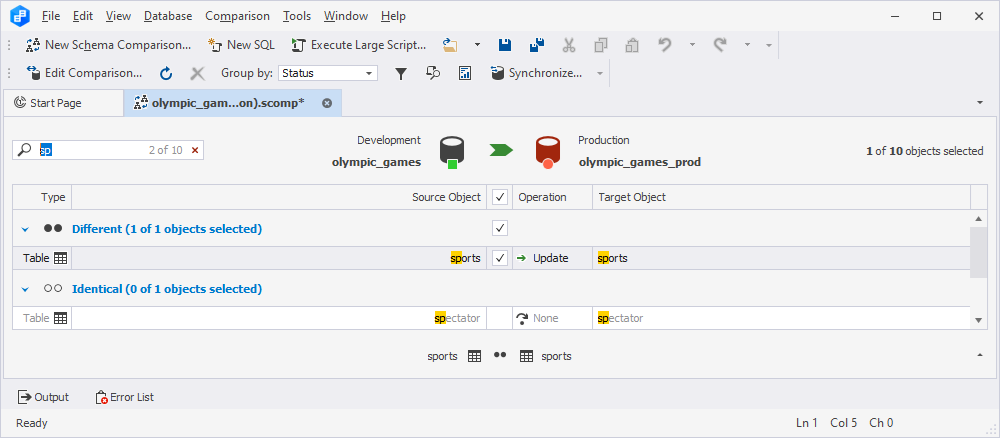
To clear the search results, click ![]() Clear Filter in the Search box.
Clear Filter in the Search box.
Save the comparison and synchronization options
Schema Compare for MySQL allows saving comparison and synchronization options for further use, such as automating and/or scheduling database comparison and synchronization tasks. These settings are saved as a .scomp file.
The asterisk next to the .scomp file in the comparison results window indicates that the project has not yet been saved.

To save the comparison settings, in the comparison results document, click the Save icon or press Ctrl+S.
Note
If you save the .scomp file before configuring the synchronization settings, it will contain the custom comparison settings, while the synchronization settings will remain as default.
To save the custom synchronization settings, you need to call the Schema Synchronization wizard by clicking Synchronize on the toolbar, clicking the green arrow button, or pressing F8. Then, make all the necessary settings and close the wizard. Now, if you save the project, it will contain both custom comparison and synchronization settings.